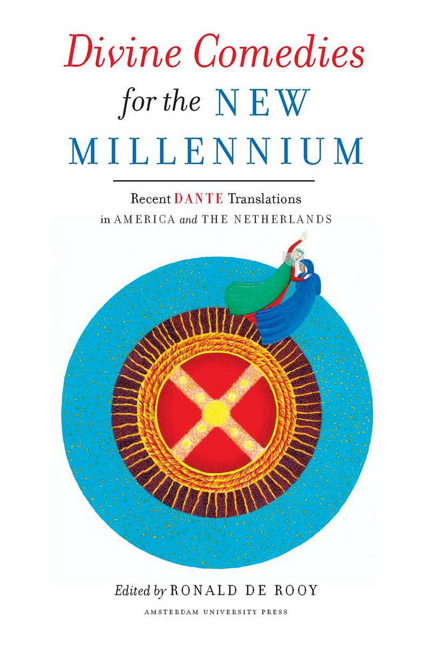Book contents
- Frontmatter
- Contents
- IntroductionDivine Comedies for the New Millennium. Humbleness and Hubris
- The Translations of Dante’s Comedy in America
- Translating Dante into English Again and Again
- ‘Getting Just a Small Part of it Right’
- The Poet Translated by American Poets. In Search of the Perfect ‘Trasmutazione Musaica’
- Ciò Che Potea La Lingua Nostra. One Hundred and More Years of Dante Translations into Dutch
- Translating Dante’s Translations
- Notes
- About the Contributors
- Selected Bibliography of American and Dutch Dante Translations
- Index of Names
- Miscellaneous Endmatter
Ciò Che Potea La Lingua Nostra. One Hundred and More Years of Dante Translations into Dutch
Published online by Cambridge University Press: 23 January 2021
- Frontmatter
- Contents
- IntroductionDivine Comedies for the New Millennium. Humbleness and Hubris
- The Translations of Dante’s Comedy in America
- Translating Dante into English Again and Again
- ‘Getting Just a Small Part of it Right’
- The Poet Translated by American Poets. In Search of the Perfect ‘Trasmutazione Musaica’
- Ciò Che Potea La Lingua Nostra. One Hundred and More Years of Dante Translations into Dutch
- Translating Dante’s Translations
- Notes
- About the Contributors
- Selected Bibliography of American and Dutch Dante Translations
- Index of Names
- Miscellaneous Endmatter
Summary
At the dawn of the twenty-first century, Dante's fortune in the Netherlands is enjoying a very prosperous moment. Within a span of only three years, a remarkably substantial number of Dante versions have seen the light. First and foremost, two new translations of the entire Commedia, published shortly after a new translation of the Inferno, integral translations of the Convivio and the De vulgari eloquentia (neither of which was ever before rendered into Dutch), an anthology of Dante's love poetry, and reprints of earlier translations of the Vita nuova and the Monarchia. In addition, a new translation was published of Boccaccio's Vita di Dante. Finally, the world of the Commedia has been brought to life by Dutch artists and musicians. Never before did the cult of Dante in the Dutch-speaking regions yield such a bountiful harvest in such a short period.
It is not the aim of this contribution to pay to these recent translations and interpretations the critical attention many of them undoubtedly deserve. To some of them, several reflections are dedicated elsewhere in this volume. As may already be clear from its title, the present contribution aims to offer a brief and comprehensive survey of the history of Dante translations into Dutch, from its beginnings until the present day. Or rather, a survey of the translations of the Commedia, for the translations of the Monarchia and the Vita nuova that have appeared in the course of time will not be treated here.
1863-2002: Fifteen Comedies and Three Inferno’s
The first complete translation of the Commedia into Dutch was published on the verge of the sixth centenary of Dante's birth, in 1863-64. This date might give rise to the impression of a severe delay, in this respect, of Dutch culture. But such an impression would be at the most only partly justified. It is known, in fact, that the great European Dante revival dates back only to the second half of the eighteenth century, and that translations of the Commedia in the various European languages begin to appear from that time onwards. The first complete translation in German was published in 1767-69, the first in English in 1802, the first in French (after Grangier’s, published as early as 1596) in 1811-13.
- Type
- Chapter
- Information
- Divine Comedies for the New MillenniumRecent Dante Translations in America and the Netherlands, pp. 75 - 100Publisher: Amsterdam University PressPrint publication year: 2003

